Heading into an enthralling 2024
 |
| Heading into an enthralling 2024, photo freepik.com |
| Walking into 2024 with confidence
Last year’s difficulties were expected, although the extent of them was not. Late 2022 brought a vigorous rebound, including for the stock markets, but it was not expected to be sustained given how geopolitical turmoil negatively impacted trade and investment globally. As we work directly with decision-makers of top multinational corporations and Vietnamese companies, we felt firsthand the pains and fears our clients, investors, and partners were facing. The best image I could conjure to make sense of the current slop in the economy is that this situation is similar to an artificial low tide before a tsunami hits. We faced a slow pace in all of our clients’ decisions when it comes to investment and strategic projects. Economic and geopolitical uncertainties were the top challenges for most, which led to slower reactions, lower spending, and cost cuttings including headcount reduction across sectors. We understood that these challenges and difficulties were cyclical and inevitable. Instead of trying to overcome these challenges, we played along and shared the difficulties with our clients and partners. We also took this opportunity to test different strategic options as well as improve our practices. We actually succeed in getting more things done with sharper structure and more focused strategies. In the medium to long-term, Vietnam continues to be one of the best markets for growth and mergers and acquisitions (M&As). In the short term, 2024 will continue to be slow as we forecasted last year, despite having a lot of interests and dry powder. Investors are still very much attracted to and eager to invest in Vietnam, while the difficulty still resides in finding the right companies and healthy targets in this market. In 2024, we will invest more on providing diagnose, readiness assessment, and legacy training and coaching for these businesses. In addition, after 2-3 years of prototyping, we will expand our services to serve disruptive and potential unicorns. This is our newest commitment to our core’s sustainable growth value where we give bold, disruptive, and young businesses the support and the sustainable best practices they need to challenge the status quo. Our ecosystem and resources are now uniquely positioned for us to do so. Record-breaking FDI inflow in 2023 and strategies for sustained growth
Over the past 30 years, foreign investment has played a crucial role in the socioeconomic development of Vietnam, enhancing the country’s position and reputation on the international stage. Particularly, in 2023, foreign direct investment (FDI) inflow reached a record high, marking the highest level in the past five years since 2019. Foreign backers also ventured into 18 out of the total 21 national economic sectors. Among these, the manufacturing and processing industry stayed at the first rank, achieving a total capital surpassing $23.5 billion, constituting almost two-thirds of the total registered capital and witnessing an increase of one-third compared to the previous year. The real estate business sector secured the second position with capital of nearly $4.67 billion. In addition, 2023 witnessed 111 countries and territories invested in Vietnam. Singapore led the way with over $6.8 billion, accounting for 18.6 per cent of the total in Vietnam and showing a 5.4 per cent increase compared to the previous year. Japan followed in second place with nearly $6.57 billion, making up over 17.9 per cent of the total and experiencing a significant 37.3 per cent growth from the previous year. For decades now, the influx of FDI into Vietnam has rapidly increased due to the participation of many large corporations in industries such as PouChen and Feng Tay in the footwear manufacturing sector, and Honda in motorcycle production. Vietnam is also one of the world’s workshops for the textile, garment, and leather industries. According to a report from Vietnam National Textile and Garment Group, it achieved its production and business targets for the year with a consolidated revenue estimated at $824.2 million, reaching 108 per cent of the plan, a 15 per cent increase on-year. The entry of foreign technology giants, such as Samsung, the largest foreign investor currently, also demonstrates the attractiveness of this market. However, to sustain and further develop these achievements in the context that other regional peers are racing to entice FDI, Vietnam needs to create a favourable business environment for investors. First and foremost, Vietnam needs to promptly review and adjust its foreign funding policies to align with and keep pace with the fluctuations and uncertainties of the global economy and changes in the attraction strategies of countries worldwide. Concurrently, it should build competitive advantages in attracting investment by improving conditions and a transparent legal system. In addition, Vietnam also needs to continue enhancing the infrastructure of industrial, export processing, and economic zones nationwide, increasing connectivity in transportation between geographical regions, especially in industrial zones, to be ready for foreign-led projects. This should be accompanied by comprehensive infrastructure development, including transportation, electricity supply, water availability, and communication capabilities. Vietnam has concentrated on the development of modern and high-tech industries such as automobiles, electronics, telecommunications, and renewable energy. The country has successfully demonstrated its attractiveness and development potential to the world. However, to continue attracting more investors in the following years, Vietnam needs to constitute a favourable business environment for them by constantly upgrading infrastructure, along with reviewing and adjusting its foreign funding policies. Focus on opportunities in key sectors
Despite global economic challenges, foreign investment and the merger and acquisition (M&A) market in Vietnam is still showing signs of growth. In 2023, the foreign investment capital flows into Vietnam have increased sharply. Manufacturing remains the top-tier sector for foreign direct investment in Vietnam, followed by real estate and production and distribution of electricity. Given the digital transformation trends and the ongoing demand for healthcare services, we expect to see more healthcare and tech-driven activities. In terms of opportunities, Vietnam is an increasingly attractive China+1 destination, especially in the manufacturing sector. US President Joe Biden’s visit in September 2023 fuelled the diplomatic partnership between Vietnam and the US, bringing a unique opportunity for Vietnam to develop its semiconductor industry. The Vietnamese government has also been actively promoting the growth of this industry with the priority of training a high-quality workforce. With continued efforts to address its shortcomings around talent, infrastructure, and energy sources overall, Vietnam is well-positioned to become a highly compelling destination for investors in this field. The adoption of the global minimum tax has impacted large-sized foreign investors. As a method to relieve the burden on investors, Vietnam is considering a new investment support policy for high-tech industries by way of a draft decree on the establishment of an investment support fund, providing a maximum of 50 per cent assistance by direct cash grant payments to certain costs of high-tech related industry. Nonetheless, this draft decree still contains provisions and limitations that need to be clarified. Therefore, any upcoming changes should be paid attention to. On the other hand, even though Vietnam’s M&A legal framework has improved over the years, the prolonged licensing procedures in practice can be demotivating for some investors. The efforts of the government in streamlining the procedures for a more efficient licensing process are well recognised. However, more actions are still encouraged to be taken in this regard. There is room for improvement and gaps to work on in order to improve the investment environment in Vietnam. Such improvement will help Vietnam to maintain its advantages in being an attractive investment destination in the region. A market trailblazer
Weathering the storm in the market in 2023, TH Group has continued to maintain its solid position as a trailblazer in the fresh milk segment, with a double-digit growth rate last year and many achievements in performing a green and circular economy. In the Vietnam Brand Footprint 2023 report for the fast-moving consumer goods industry by Kantar Worldpanel Vietnam, TH true MILK was again listed in the top 2 milk brands and products chosen most by urban consumers. It is also the sole milk brand in the top 5 brands gaining more purchase occasions and attracting hundreds of thousands of households in rural areas. TH Group is continuing its journey for the sake of the health of the community, helping to adjust consumption habits, research, and markets to become more innovative in service of the diverse needs of consumers. Our products are closely linked with new trends in health protection via the reduction of sugar content and use the natural sweet flavours. Last year, TH Group expanded its distribution network and consumer-oriented experience. It also became a successful example in e-commerce development, with its revenue from e-commerce soaring by 45 per cent compared to 2022. Major social platforms have also recognised TH Group as an excellent business with the best digital-based activities in the past couple of years. What is more, 2023 also saw impressive figures in the group’s journey towards a green and circular economy. TH Group’s reduction of greenhouse gas per each unit of product reached more than 20 per cent. The group has increased the use of green energy, boosted product recycling, and adhered to extended producer responsibility and environmental protection. In 2024, TH Group will continue implementing brand promotion, in which it will continue its non-stop innovation activities with better understanding about consumers’ requirements. It will also continue research on new consumption trends with new products and flavours, further strengthening TH Group’s continued position as a trailblazer in the market. A cautious approach expected to dominate the market
The main obstacle faced by Arcadia Consulting in 2023 was the lack of growth in the market, which was influenced by changing regulations and uncertain global economic conditions. This is a typical occurrence in the real estate industry. In addition to these regulatory changes, the industry’s recovery was further hindered by supply chain disruptions. This situation highlighted the importance of adopting a forward-thinking approach to effectively navigate and thrive in such an intricate setting. To overcome challenges, we are planning for the long term and thorough risk management is at the core of our strategy. We increased our attention to forecasting and scenario planning in order to anticipate movements in the market, which enables us to adapt our client plans in a proactive manner. Our operations are guaranteed to have a certain degree of sustainability as a result of this. A cautious approach is expected to dominate the market in 2024, with investors and consumers carefully analysing the evolving regulatory and economic environment. This is the perspective we have for the global economy. With a strategic mindset, it is wise to allocate capital towards alternative assets, as they offer greater stability and opportunities for innovation. It is important to pay special attention to industries such as purpose-built student accommodations and senior housing. Given the strong resilience and growing demand of these specialised sectors, it is expected that they will attract significant investment. To support foreign-invested enterprises, the government should prioritise streamlining regulatory processes to create a more favourable environment for foreign investment. Improving transparency and offering assistance in navigating local, provincial, and national regulations and practices will help to foster foreign investment. A number of regulatory actions and interest rate reductions that have taken place over the course of the past year have halted the downward spiral. Investors who are already familiar with Vietnam’s legislation and investment protection measures are more likely to be the ones who are interested in investing in Vietnam, as opposed to foreign investors. A more long-term answer to the problem of growing supply would be to create and invest in housing for middle-income families that is in line with zoning regulations and schools that provide educational opportunities. In the meanwhile, businesses in the industrial and logistics sectors are likely to continue developing. This will result in a shift in demand away from antiquated owner-occupied stock and towards higher-quality leased storage, which will lead to increasing automation and productivity. Positivity should lead the way
HSBC Vietnam has had to overcome a number of challenges over the past few years from the impact of the pandmic, the economic challenges associated with inflationary pressures, a tightening in market liquidity, and others. Each has needed a different solution and a different mindset. Thankfully our team has the resilience, the desire, and the motivation to navigate the challenges that we face and it has made me very proud that they have done this while at the same time supporting the communities in which we operate and looking after each other. It gives me the sense that there is no challenge that our Vietnamese team cannot rise to. HSBC has a culture where we actively promote diversity and inclusion. This means that every individual, regardless of their gender, race, or religion, is welcomed at our bank without prejudice, and receives fair treatment. All our team members are encouraged to explore and maximise their strengths, helping them to be at their best. Our recruitment processes are such that we welcome all who individuals who have the drive, passion and capabilities required for a fruitful career at HSBC. Specifically, we are blessed to have so many female colleagues who come in everyday and give it their very best. They inspire us to be better every day. Their work ethic, their ability to solve problems by working together with other people in the organisation and their compassion in times of trouble has been a key ingredient to HSBC’s success in Vietnam. I was blessed to take over an amazing team four years ago and I feel pressure to make sure that when I hand it on to the next CEO that they feel that they are being passed on an even more amazing team. There are always positives and negatives in life. Sometimes it feels easier to focus on the negatives and complain about them but once you get into that mindset, you forget to try and capture the positive opportunities that exist. There are negatives to every economy in the world but my view of the Vietnamese economy and the Vietnamese people is that there will always be challenging periods but that the trend remains positive and we need to focus on that. It creates the right mindset and people always enjoy being around people who are upbeat rather than people who are downbeat. It has been an incredible journey, with highs and lows along the way. I am however proud to say that there have been a lot more ups than downs. I have learnt a tremendous amount from my team, from the Vietnamese and from Vietnam. I feel I am a better executive and a better person now. Strategies for economic resilience
In 2024, Vietnam’s economic landscape necessitates a strategic adaptation from business leaders, especially in the supply chain and industry sectors. The year witnessed a significant dip in global demand for Vietnamese exports, contributing to a 5.7 per cent decline in export performance. Domestically, consumer spending didn’t rebound as expected, reflecting a cautious stance in an uncertain economy. Externally, global supply chain disruptions are expected to persist, influenced by events like the Suez Canal attacks and Panama Canal droughts. These events, coupled with container imbalances and potential oil price hikes, are pushing for a regionalisation of supply chains. Vietnam, therefore, needs to realign its export strategy, focusing on reliability and sustainability to remain competitive. Internally, Vietnamese companies grapple with raw material shortages, increased shipping costs, and logistical hurdles. Addressing this requires diversifying supply sources, better demand planning, and dynamic cost and pricing adjustments. A crucial area of focus is digital transformation in supply chains, where many Vietnamese companies lag. The transition to digital supply chains, although complex, is vital and should start with foundational steps such as maintaining accurate master data and establishing data lakes. Large-scale corporate digitalisation programmes might need recalibration due to the iterative nature of technology evolution. For 2024, AI should be viewed as a strategic direction rather than an immediate solution, given the challenges in its adoption within business and supply chain contexts. This year is critical for Vietnamese businesses to demonstrate strategic agility. Building resilient supply chains, embracing sustainability, adopting technology iteratively, and diversifying markets and sources are imperative for thriving in the current economic climate. Companies that can swiftly adapt to these evolving conditions are likely to emerge stronger and more competitive, both in local and global markets. A growth strategy centred on strategic locations across Vietnam
BW Industrial (BW) is on a fast-expanding growth track. In 2023 alone we had the groundbreaking of 10 projects with a total gross floor area of one million sq.m. So far, we have more than 8.9 million sq.m of industrial land in prime locations under control across 48 projects in 11 provinces. BW’s properties are leased to both local and global tenants through its vastly experienced and multilingual sales force, with successful pre-leasing and a high occupancy rate of 93 per cent on average for stabilised projects. BW boasts the experience of serving a highly diversified tenant base of over 270 high-quality tenants from more than 20 countries. Its tenants include Shopee, BEST Inc., 7-Eleven, ACFC, Jusda, HKC, Chervon, RPAC, and TTI. Although phone shipments are down, exports of computers and electronic parts are up. Vietnam high-tech goods as a percentage of total exports are now more than 40 per cent. This is also reflected in BW’s tenant profile, where 40 per cent of our ready-built factory space taken up by electronics-related manufacturers. Vietnam has aligned itself well with China’s advances in emerging high-tech sectors. In particular, Chinese investments in Vietnam are on the rise and in advanced sectors such as electronics, semiconductors, and electric vehicles. I had customers who have provided me with positive feedback about the Vietnamese workforce, explaining that they are motivated and even as wages rise, they are confident that the productivity increase will outweigh the wage increase. Having said so, that there is a lot that companies can do to invest in upskilling their labour talent. Specifically, the Joe Biden visit has promised US funding support in helping Vietnam train and upskill their workers in the area of science, technology, engineering, and maths education and semiconductors. BW’s growth strategy has been built effectively around the strong belief in Vietnam’s outsized manufacturing growth opportunities, increasing domestic consumption, and rapid growth of e-commerce combined with fast-growing trade activities that have outpaced its peers in the region. We selectively acquire assets with good commercial terms to complement the development portfolio and grow our geographic footprint. These assets are developed into facilities tailored to the specific needs of the tenants. Supporting growth targets
We believe that in 2024, Vietnam’s next stage of growth will be fuelled by domestic consumption and export recovery as well as public investment. MUFG will continue to implement our strategic agenda to support Vietnam’s long-term development by boosting foreign direct investment inflows, driving the green transition, and fostering digital transformation. Foreign investment remains the fundamental bedrock of the Vietnamese economy. Over the years, MUFG has championed Vietnam’s prospects through regular dialogues between Vietnamese officials and the bank’s unrivalled network of multinational and Japanese corporate and investor relationships. I believe the government is keen to shift investment from labour-intensive industries to high-tech sectors. MUFG will prioritise providing funds for these strategic sectors, including environmental infrastructure, renewable energy, and high-tech fields. We have also recently signed an agreement to fortify ties with the Vietnam National Innovation Centre to support the country’s vibrant startup ecosystem. We will also leverage our strong track record in environmental, social, and governance (ESG) financing to help Vietnam accelerate its green transition. Together with our strategic partner VietinBank, we will continue to engage all stakeholders to facilitate greater levels of public-private sector partnerships to realise Vietnam’s Power Development Plan VIII goals by 2050. An important step in this direction is MUFG’s commitment to partner VietinBank in the mobilisation of up to $1 billion of ESG financing to support Vietnam’s climate targets. Moving in a digital direction
The emergence of digital technologies has disrupted traditional banking activities, forcing banks to change their strategies and adapt to the strong development of digital technologies. The digital transformation process of the banking industry creates new trends, typically integrating AI technologies into banking operations. However, I am not worried about the predictions in the near future that machines will replace humans, or that machines can handle the amount of work that needs many people to carry out. Machines and AI have no human emotions, intuition, or sensitivity that humans can bring to clients. Humans are always at the centre and no machine can replace them, including AI. Machines are only there to help people live better. We have carefully prepared the necessary digital technology platforms and launched a digital banking division in 2021 with the aim to promote a culture of innovation that is stronger, faster, and customer-centric. In just a short time, digital transformation at SHB has helped enhance the customer experience, allowing the bank to provide financial services more quickly, conveniently, safely, and securely. SHB has invested resources and budget to upgrade core banking, the card system, investment banking, loan origination solutions, omnichannel system, and related IT systems. To realise our digitalisation goals in 2024, we have been applying methodology that converts all existing services to a new platform, ensuring a smoother, friendlier, and safer experience for customers. In particular, we are currently focusing all our efforts on launching an entirely new digital banking application with tech advantages in the market. Carving out a competitive edge
US Fed interest rate hikes in 2022-2023 have caused demand to slow down, and therefore export demand for Vietnam also came down. Vietnam’s trade dependence (measured by total trade to GDP) is the second largest in ASEAN after Singapore, therefore affected the most by weak external demand. Our team downgraded Vietnam’s growth forecast around July, as trade data continued to stay weak. While 5.05 per cent was slower than the official projection of 6-6.5 per cent, it is an achievement given the circumstances, as the State Bank of Vietnam also went into action by lowering interest rates to provide support to domestic businesses and consumers. The external demand will be affected by the slower growth in the world. For the US, we are expecting a slower growth for GDP in 2024, about 1 per cent from 2.4 per cent. China also will be a bit slower this year, but more stable from last year at 5.2 per cent. We are forecasting China’s GDP growth this year is about 4.5 per cent. This will be a challenge for Vietnam as they are Vietnam’s big trading partners. However, we expect semiconductor and tech cycles to continue momentum this year, which will benefit Vietnam’s exporters in the tech sector. We also see US rate cuts to start from June, about three times this year, which will be helpful also in terms of supporting business activities when rate cuts coming in. In the rest of Southeast Asia, the growth is still quite stable, which means Vietnam’s trading activities with these Southeast Asian countries should be fine. At the same time, we think that Vietnam’s tourism sector should continue to improve this year. In short, there are still challenges in 2024, but we expect that the tourism sector, manufacturing sector, and exports should be on the way to recovery. Although last year was a very challenging year, when we look at foreign direct investment, Vietnam had record inflows in 2023, which suggests that companies continue to see value and opportunities in the country and will lay the foundation for more business in subsequent years. If we look at the whole of ASEAN, in terms of foreign investment coming into the region, Vietnam is number three, followed by Singapore and Indonesia. Vietnam has its own competitive edge and investment by the government in infrastructure, education, and healthcare is significant both in the short and long term to support business activities and to increase competitiveness. Proud to be part of Vietnam’s story
Rising living costs have encouraged customers to tighten their belts as well as prioritise essential and valued goods in their shopping baskets. That was driven by the impact of the unstable global situation, such as increased inflation and decreased export. This situation resulted in a decreasing trend in the customers’ basket sizes, even the number of customers increased at AEON Vietnam in 2023. In general, while 2023 still delivered the full-year growth, it cannot directly compare with 2022. Because in 2022, the consumer spending strongly recovered after two years of interruption. Due to the impact of the wider economic context, consumers prioritising cost saving will continue in 2024. There is still potential to grow, but it cannot increase dramatically. The business environment is expected to be more challenging. Consumers continue looking for new values, and the speed of change in consumer behaviour is extremely fast. Therefore, retailers must keep innovating and transforming to meet our customers’ demands. Changes in consumer demand and behaviours are also opportunities for retailers like AEON to change and grow. AEON Group has determined that Vietnam is a second key hub beside Japan. So, we will continue accelerating our investment in Vietnam to contribute to the sustainable and prosperous life of people where AEON presents. In 2024, AEON will accelerate our business expansion and embrace a multi-format development strategy to better serve customer’s needs. We continue opening large-scale shopping malls. However, to meet the changing customer’s behaviours to prefer convenience, we will develop multi-formats that are appropriate for the needs of local communities and actual conditions of local areas with flexible sizes. The shopping mall AEON Hue is expected to come into operation by the end of the fiscal year. In 2024, we plan to open 2-3 large-scale stores including a shopping mall and general merchandise stores, as well as a supermarket in the north, a larger supermarket format in the south, and speciality stores nationwide. We will also be revitalising our Citimart stores in the south, which offer a more convenient and affordable shopping experience. In addition to our physical stores, AEON Vietnam is also investing heavily in our ecommerce platform, AEON EShop. We have already made the platform more user-friendly and available for all stores. Furthermore, driven by the ambition to offer high-quality Vietnamese-made products at accessible prices while upholding our stringent standards, we will continue promoting the development of AEON private brand products like TOPVALU, HÓME CÓORDY, and GIORNO MIMOSA, proudly manufactured in Vietnam. In addition to production, we’re also investing in developing retail talent. We believe that a strong retail workforce is essential to Vietnam’s growth. A trusted partner to go global
Global retail e-commerce is increasingly opening up many opportunities and is a new movement for sellers from many countries, including Vietnam. Vietnam is a dynamic economy based on exports. The export value of goods and services will reach 91 per cent of Vietnam’s GDP in 2022. It is an incredible thing, when the world is shifting from traditional exports to global e-commerce, or from business-to-business wholesale exports to business-to-consumer retail exports, where the brand owner directly controls the product, product category selection strategy, pricing strategy as well as many other aspects. Combining advantages in product innovation, production capacity and strong digital transformation, Vietnam can effectively promote retail exports through e-commerce. Amazon Global Selling continues its role as a trusted partner on the global journey of Vietnamese entrepreneurs, businesses, and manufacturers. We provide resources, tools, and services to help them succeed in international trade, and strive to create a more comprehensive, effective, and professional multi-party support system for Vietnamese businesses on this playground. We also aim to expand our support for Vietnamese sellers to enhance innovation, improve competitiveness, achieve business development, and build global brands, capture this dynamic new export trend. In 2024, Amazon Global Selling Vietnam focuses on three strategic focuses. Firstly, it will increase readiness for cross-border e-commerce in Vietnam by promoting cooperation with government agencies and strategic partners to provide training for domestic small- and medium-sized enterprises; promote the development of service providers in the industry; and replicate knowledge and experience sharing activities within the seller community. Secondly, we will promote supply chain connectivity, including connecting sellers with manufacturers in many industries nationwide to create and expand the product portfolio made in Vietnam, and at the same time encourage domestic manufacturing enterprises to quickly grasp online export trends and opportunities. Finally, the goal is to improve the quality and success of Vietnamese sellers through increased investment in training sellers, supporting the building and development of global brands, and expanding support throughout the seller’s online export stages, including account registration and management, cost optimisation, logistics, and branding. We have continuously introduced new and improved tools and services, and recently launched the first Amazon Day-1 Training Centre in Vietnam to help businesses that are unfamiliar with Amazon to explore all available services and features, thereby building their brands and reaching global customers. Amazon also introduced a series of new and improved tools and programmes to help businesses accelerate exports via e-commerce. These types of support create conditions for Vietnamese businesses to have the opportunity to compete fairly with sellers in other markets, bringing more choices and value to customers. All create a launching pad to help businesses succeed. Breakthrough growth for e-commerce
This can be a breakthrough year for e-commerce. Until 2019, e-commerce was still growing moderately, but consumers of all generations in the years since were more likely to buy goods and services digitally, accelerating an expansion of e-commerce. The last two years has marked a transition in sellers and manufacturers. We also witnessed incredible growth of TikTok and TikTok Shop in 2023 as the number of businesses registered on the platform grew continuously every month. TikTok is confident that this trend will continue because we see that traditional commerce is forced to convert digitally to e-commerce. In recent months, traditional commerce has seen a decline in purchasing power, but e-commerce platforms are witnessing a very bustling shopping atmosphere. Manufacturers should see e-commerce as a solution to promote business growth. TikTok and other e-commerce platforms have many solutions to support both buyers and sellers. We have also cooperated with Ho Chi Minh City People’s Committee to organise a large programme with the highest level of support in both price and credit to stimulate consumer demand. We aim to build a safe shopping environment, protecting the property rights of sellers, and prohibiting the activities of dishonest sellers, or sellers who post fake, counterfeit, or poor-quality goods on the platform. TikTok has a strict control system to ensure that the goods and products listed comply with all applicable laws and safety standards. We also build a system to censor content creators and ensure that buying and selling products on the platform is in accordance with the law, limiting buyer misunderstandings. TikTok is committed to creating a fair shopping environment with the best support to ensure that buyers with medium budgets can still shop on the TikTok platform. That is also the reason we choose to work with banks and local governments to come up with appropriate promotion programmes. I could feel an obvious change in 2024 in the traditional commerce workforce, sellers at markets, shopping centres, and big brands that are forced to apply e-commerce. In addition, recognising that small and medium-sized enterprises play a crucial role in boosting the economy of both the region in general and Vietnam in particular, TikTok will continue its efforts to accompany them in achieving positive business outcomes on the platform. We hope that TikTok can serve as a driving force to promote the sustainable development of such enterprises in Vietnam, making a more significant contribution to the local economy. TikTok continuously introduces training programmes, providing operational skills, content creation techniques, and support solutions. Throughout 2023, over 140 free weekly training sessions were conducted, aiming to enhance competitive capabilities, boost brand recognition, and optimise operations on the platform for more than 50,000 micro, small, and medium-sized enterprises. Evaluating potential of new export markets
The biggest challenges we faced in 2023 was the slow economy coupled with less new FDI coming into Vietnam. Our business is primarily based on assisting foreign businesses to set up companies in Vietnam and we clearly see a slowdown as compared to prior years. We are hopeful that there will be a noticeable and strong rebound in 2024. I agree with many government policies launched during 2023 to help boost the economy, such as reducing interest rates, and I believe the worst is behind us. There is a great potential for Vietnamese products to export. Everyone knows that 2023 was slow for exports, with many of the causes outside the control of Vietnam. There were geopolitical issues, conflicts in Europe and the Middle East, high interest rates, etc. Many manufacturers have weathered the storm well in 2023 and are poised to improve in 2024. Key export markets for Vietnamese will always be the developed countries in Europe and North America. These countries are where consumer demand is the strongest and will key to 2024 economic rebound. Setting out a long-term vision of sustainable urbanisation
Amidst the uncertainties in 2023, we accomplished notable milestones thanks to the cooperation of all stakeholders. In terms of project development, we achieved full booking for SOHO Heritage West Lake at its exclusive launch in the first quarter of 2023. Around 95 per cent of commercial shops at this development have also been booked. De La Sol, our first residential development in District 4 of Ho Chi Minh City, was completed and handed over to homeowners in the fourth quarter of 2023. Meanwhile, we acquired a high-end residential project in the form of Lumi Hanoi, which has over 4,000 units. This year marks 30 years of CapitaLand’s presence in Vietnam, a significant milestone that showcases our achievements and commitment to the country. We began our business in Vietnam with a serviced residence project and have since diversified our portfolio to various asset classes, including residential, lodging, retail, and integrated developments. We are excited for 2024, as we will have both new events and new opportunities. Some of the events include the handover of DEFINE in Ho Chi Minh City in the first quarter, the sales launch of Sycamore’s first phase in Binh Duong New City, the sales launch of Lumi Hanoi, and the handover of Heritage West Lake in the second quarter. We will also explore new investment opportunities in the north and south regions. We are keen on opportunities across various asset classes, especially in the residential and commercial sectors, in the near term. Our long-term vision is to be a developer of choice in Vietnam’s sustainable urbanisation journey, contributing to the country’s economic success with quality real estate products and services. We are also exploring opportunities to expand into the localities of Bac Ninh, Hung Yen, Haiphong, Binh Duong, Dong Nai, and Long An. Through the CapitaLand Hope Foundation, our philanthropic arm, we support the education needs of children in Vietnam. Since 2007, we have refurbished four local schools under the CapitaLand Hope School Support Programme to help children access quality education. As part of CapitaLand’s 30-year anniversary in Vietnam, we plan to launch the fifth school this year, located in Bac Giang province. Logistics and air cargo outlook
Last year closed as a challenging one for all companies operating in logistics, shipping lines, and air cargo on a global scale. On-year revenues for many companies recorded a decrease of at least half. Geopolitical tensions, high interest rates in the US and EU, and China’s slowdown all dampened consumer confidence. High inventories in the US and EU are the main reason for fewer orders from Vietnam, thus directly impacting production and export volume from Vietnam throughout 2023. Admitting the head-winds in 2023, ITL Corporation had adopted the strategy of “reinforcement” in order to prepare for the following year. The picture in 2024 is still a question mark whereby the war between Russia and Ukraine is still going on, among other issues. As forecasted, the US Federal Reserve may start to reduce interest rates from the middle of 2024, or possibly from the second quarter of this year. Despite current uncertainties due to ongoing tensions, we are bullish about the recovery of cargo volume in 2024 compared to 2023, especially from the second half as 2023 had bottomed out. Sustainability and digitalisation are the continuous trends we see for the logistics industry in 2024. We not only commit to offering exceptional customer services, but also invest in green and sustainable assets. ITL has been awarded Label Leaf Level 3 by Green Freight Asia to recognise its efforts in employing green transportation, with aim to improve fuel efficiency and reduce carbon emissions in Vietnam. In addition, ITL also invests heavily in prime movers and small trucks with fuel-efficient engines and meets Euro 4 emission standards in order to protect the environment. The company also installed solar panels in warehouses. ITL combines barge and truck transportation to reduce emissions, because the emissions amount of each tonne of goods on a truck is eight times greater than on a barge. We are also working with other agencies to import the first batches of electric trucks into Vietnam. Long-term strategy for business transformation and growth
It was a difficult year for the business in general in 2023. The challenges that Frasers Property Vietnam (FPV) has been facing in the current global economic and geopolitical landscape has had a significant impact on supply chains. Declining orders, rising input costs, lack of export markets, and the implications of minimum tax policies have made large corporations more cautious about their investment decisions. As a result, our industrial team has been under increased pressure when it comes to attracting and securing tenants. To external factors, like other businesses, we face difficulties with legal issues and administrative procedures, which are conflicting and slow down the project implementation process. Internally, one of the key concerns we are addressing is the management of capital flows and resources, as well as in the high volatile situation of interest rate for our ongoing industrial real estate projects which are covering up to one million sq.m nationwide. Despite the volatile environment, FPV delivered a stable performance as we are progressing the execution of our long-term strategy that guides the company’s business transformation and growth to be a trusted real estate company in the country. Firstly, we remain focused on value creation. Our team must maintain the rigour of investing well, managing well, and unlocking value. Next, we turned our attention to building business platforms driven by local expertise with in-depth domain knowledge. Taking the time to do so was necessary to set up our foundation for the road ahead. We view sustainability as an integral part of our company’s business strategy and see the opportunities it offers as we act in the interests of our employees, customers, communities, and our shareholders. We are guided by our purpose of inspiring experiences and creating places for good, and we focus on the long term, while adapting to new developments. Focusing on competitive advantage and customer centricity is another essential factor. We have set up asset class centres of excellence this year to leverage collective asset class strengths, such as customer networks and expertise. From investment, design, and capital to planning, development, and asset management, the centres of excellence will sharpen our core capabilities. We are also seizing opportunities and investment. Last year, we primarily focused our investments in industrial and logistics (I&L) and commercial, which we see robust long-term fundamental demand. We extended our footprint in northern Vietnam and strengthened our current southern I&L portfolio. We focused on building a multi-market network that is positioned to support our customers’ businesses and capture opportunities across geographies. In 2024, we expect the I&L market to continue its upward trajectory. The robust growth and expansion in manufacturing, particularly in computers and electronics, machinery, and equipment, will persist in fuelling the demand for such facilities. We expect an increased focus on sustainability and technology integration. Green initiatives, such as energy-efficient buildings and sustainable practices, will be highly valued. FPV is anticipating the emergence of new trends in I&L in 2024 that focus on high-quality industrial amenities to support the industrial life with essential service and green space. Developing multi-product industrial parks (IPs) with diverse spaces and well-designed infrastructure will also significantly enhance their appeal to customers amidst the growing demand. At FPV, we adapted an initiative improvement into our I&L called a “premium estates concept”. Our IP focused on sustainability, having integrated amenities and the provision of full-cycle business services support for our tenants. Our strategy and care to ensure we have both the hardware and software was a right move and today. We optimise net lettable area to increase green and efficient in IPs such as outstanding infrastructure, the park-in-park model, and providing multi products with various spaces from 1,000 to more than 20,000sq.m to fulfill all business demands for all types of businesses. In the last decade, we have embarked on a business transformation journey. Our strategic objective was to transform the business into one that can deliver value to stakeholders over the long term, to withstand the ups and downs of property cycles and continue to deliver sustainable returns. We will remain selective on the asset classes and geographies to be active in, including looking out for value-added plays and opportunities to unlock value to carefully grow our portfolio. A pivotal year for Vietnam’s livestock industry
As the Lunar New Year dawns upon us, The Schippers Group celebrates a significant milestone of two years of thriving operations in the vibrant Vietnamese livestock sector. We are filled with optimism for what 2024 holds in store. The livestock industry in Vietnam faced several challenges in 2023, including production costs that were often higher than the market prices for pig and poultry products. We are happy to have supported farmers during this difficult time by providing them with innovative hygiene solutions that helped them reduce operational costs effectively. Vietnam’s market is ever-changing and ever-growing, presenting vast opportunities for the production and consumption of sustainably produced, safe, and superior-quality livestock products. We have implemented better hygiene practices in farms, reducing antibiotic usage and improving animal welfare while increasing profits and enhancing working conditions. These efforts ensure food safety, strengthen Vietnam’s global market position, and increase export opportunities for livestock farmers. Our main objective for 2024 is to broaden our presence in this market together with our Vietnamese partners. To accomplish this, we aim to leverage the potential of the domestic market and support clients in expanding into export markets by utilising our advanced hygienic farming techniques. We also bring more experts to Vietnam to facilitate knowledge transfer. These activities are to help farmers develop their compliance with international quality standards for export and bolster their competitiveness in the domestic market. We are committed to sharing our knowledge of sustainable livestock farming with our Vietnamese partners. To achieve this, we plan to intensify the collaboration with universities and other knowledge partners. Our initiatives involve sharing improved management practices for farms and facilitating exchange programmes for students and employees to visit our facilities and farms in the Netherlands. To support this vision and to facilitate the ease of doing business in Vietnam, we recommend that the government persists in its drive to implement e-government services. This initiative is essential for enabling more administrative procedures to be carried out online, reducing the need for paper-based dossiers and streamlining admin processes. Developing ventures with convenience in key locations
KCN Vietnam has been focused on developing and expanding its available land, as well as completing the construction of warehouse systems and ready-built factories at projects in key economic zones in the north and south. By the end of 2023, four projects in Haiphong, Dong Nai, Long An provinces have been completed and ready for handover. The remaining projects are also rushing to complete the construction process to be ready to supply to the market later this year. During the process of building and developing infrastructure, KCN Vietnam encounters certain difficulties related to rising raw material prices, exchange rate fluctuations, and credit interest rate fluctuations, caused by the world political situation and the disruption of the global supply chain. Besides that, last year saw many changes and updates to regulations related to construction and fire protection, affecting the speed of construction and handover to customers. The slowdown in global economic growth also negatively affected capital flows to Vietnam in the past year. To overcome these challenges, KCN Vietnam focuses on finding and developing projects with particularly convenient and key locations along with accompanying consulting policies to welcome foreign-invested enterprises to come and looking for attractive investment opportunities during a period of difficult general economic conditions. We expect that the industrial real estate market in general in 2024 will have strong development thanks to several positive factors. This includes the promotion of bilateral diplomacy, the government’s strategy with other countries that focus on foreign capital such, and promoting strategic policies to turn Vietnam into a sustainable industrial centre in ASEAN. Vietnam is also building infrastructure to reduce logistics and input costs, increasing product competitiveness, training high-quality human resources, and improving institutions to facilitate and reduce compliance costs for businesses. To create better conditions for logistics/industrial real estate companies doing business in Vietnam, the government should have policies to promote and support infrastructure development green infrastructure, sustainable development elements of efficient energy use, emission reduction, and others. |
What the stars mean:
★ Poor ★ ★ Promising ★★★ Good ★★★★ Very good ★★★★★ Exceptional
 Tag:
Tag:
Related Contents
Latest News
More News
- A golden time to shine within ASEAN (February 19, 2026 | 20:22)
- Vietnam’s pivotal year for advancing sustainability (February 19, 2026 | 08:44)
- Strengthening the core role of industry and trade (February 19, 2026 | 08:35)
- Future orientations for healthcare improvements (February 19, 2026 | 08:29)
- Infrastructure orientations suitable for a new chapter (February 19, 2026 | 08:15)
- Innovation breakthroughs that can elevate the nation (February 19, 2026 | 08:08)
- ABB Robotics hosts SOMA Value Provider Conference in Vietnam (February 19, 2026 | 08:00)
- Entire financial sector steps firmly into a new spring (February 17, 2026 | 13:40)
- Digital security fundamental for better and faster decision-making (February 13, 2026 | 10:50)
- Aircraft makers urge out-the-box thinking (February 13, 2026 | 10:39)


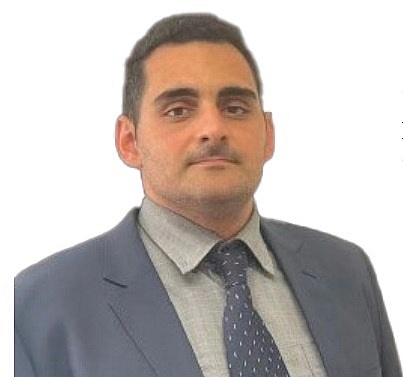
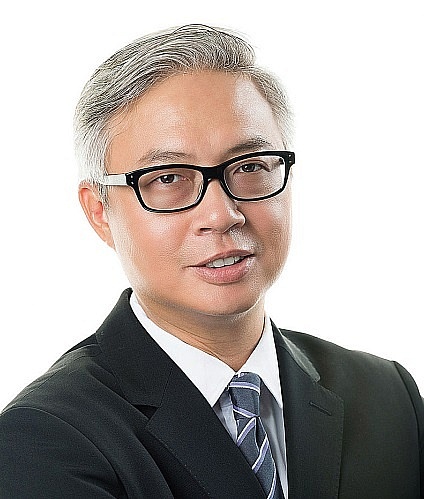


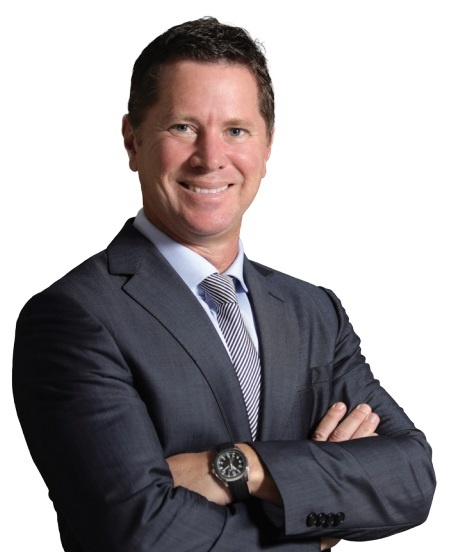

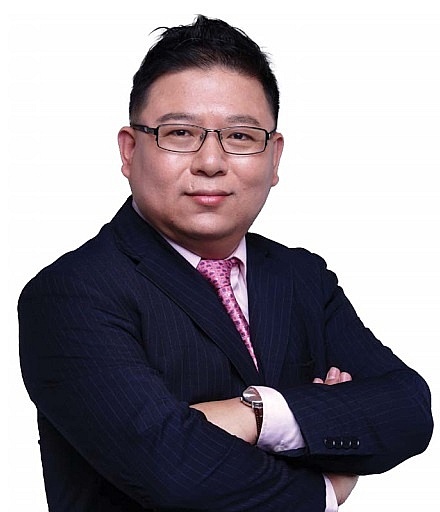
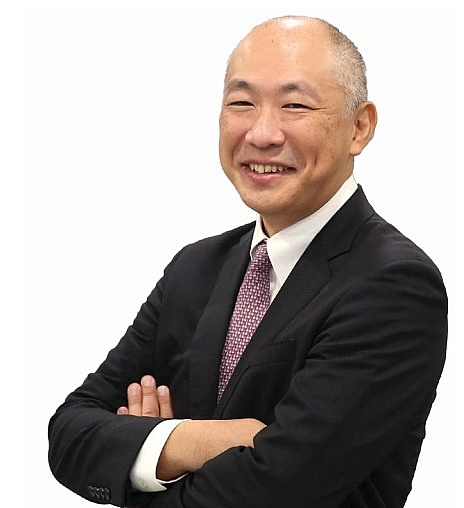

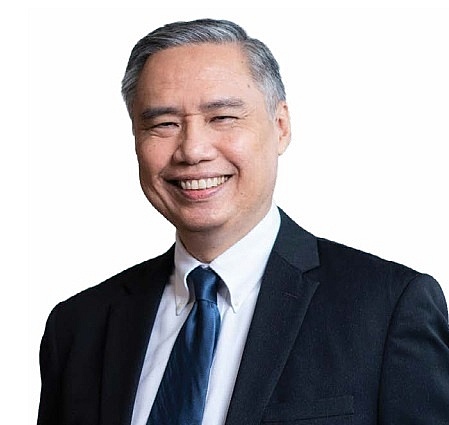
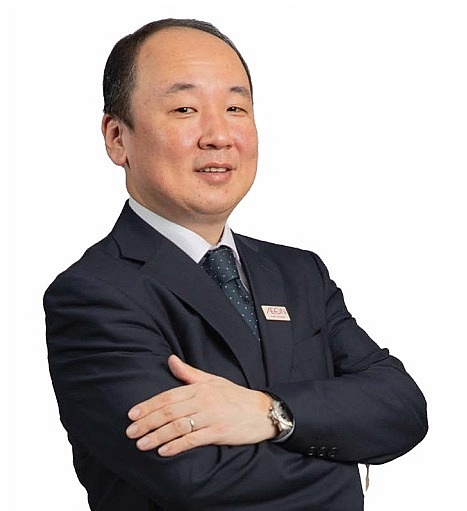
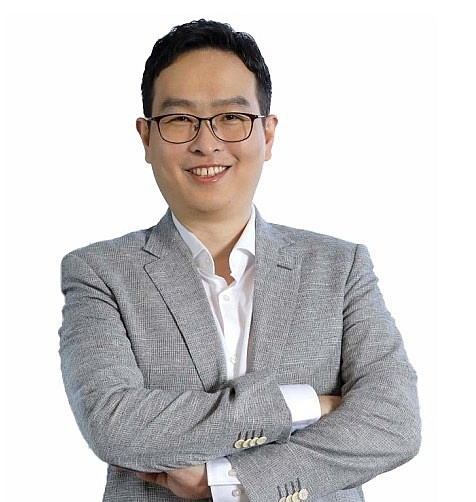
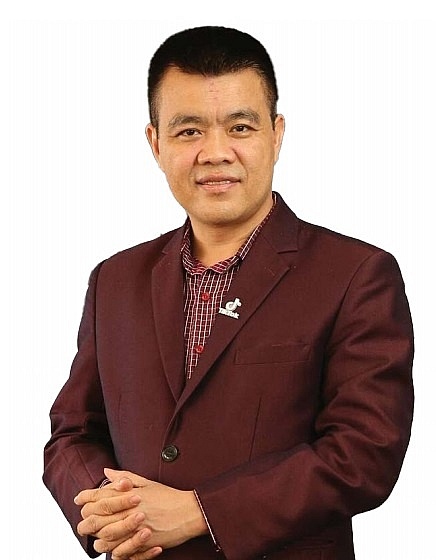

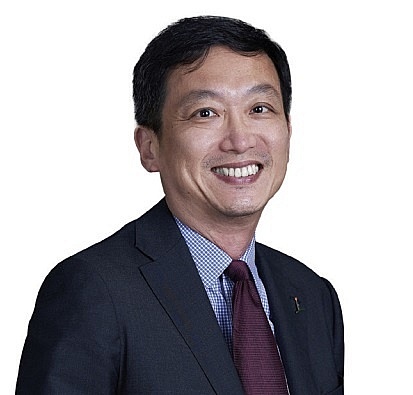
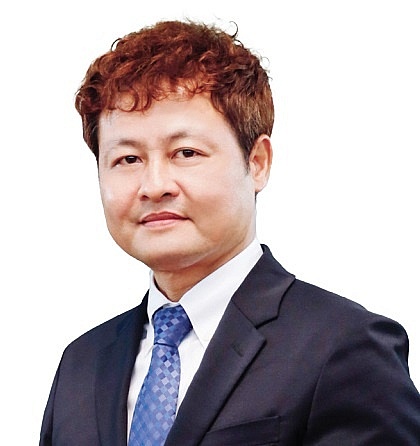
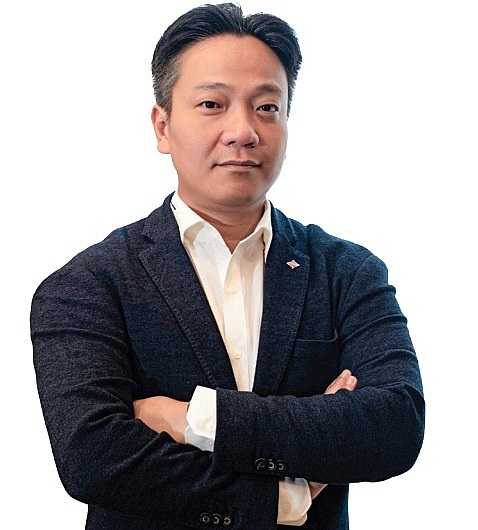
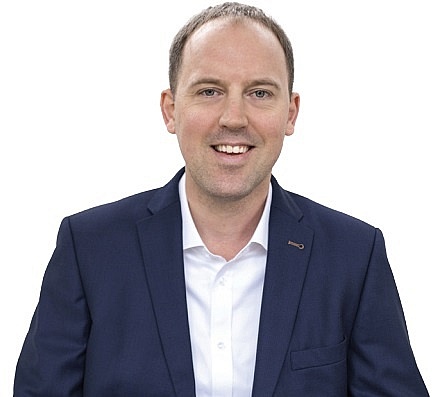















 Mobile Version
Mobile Version